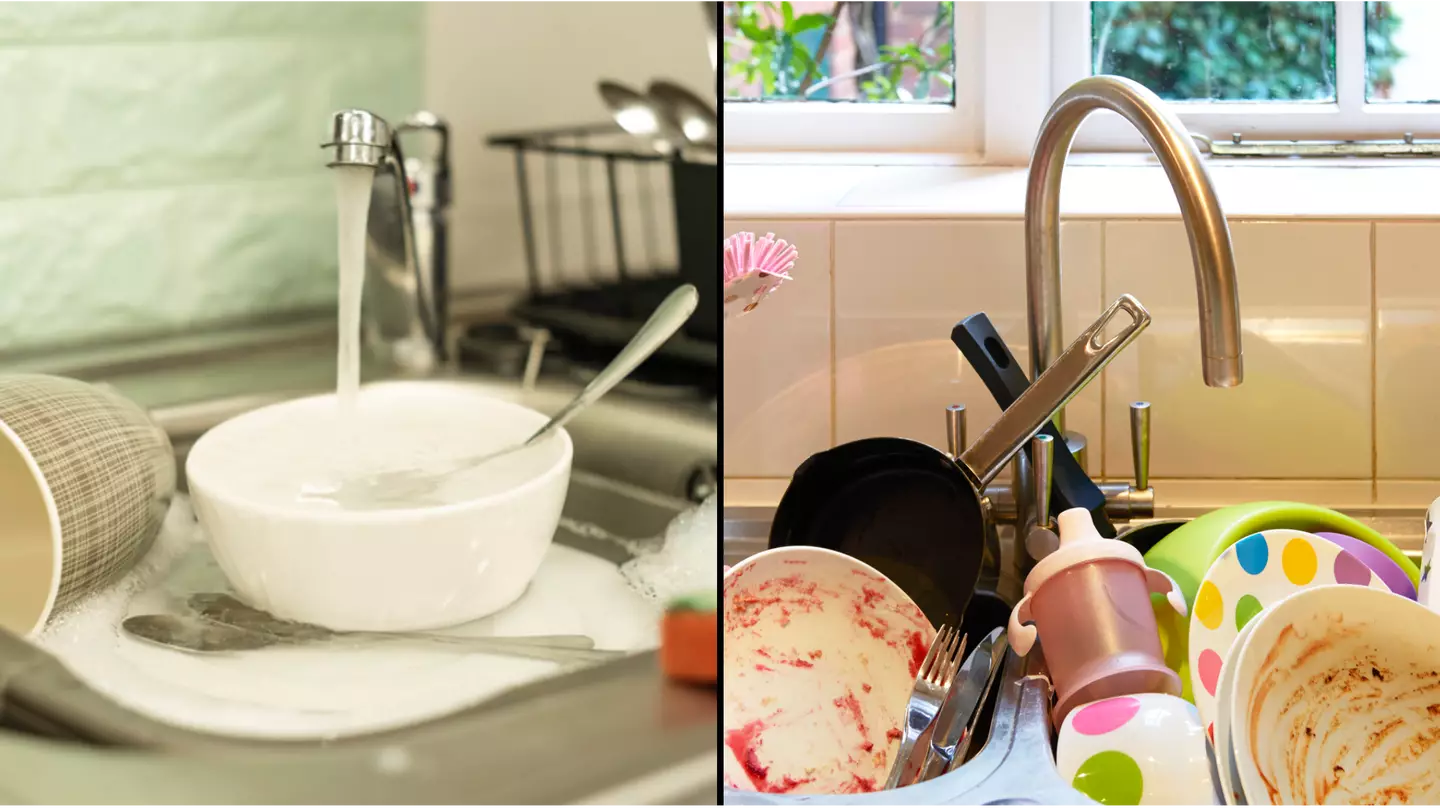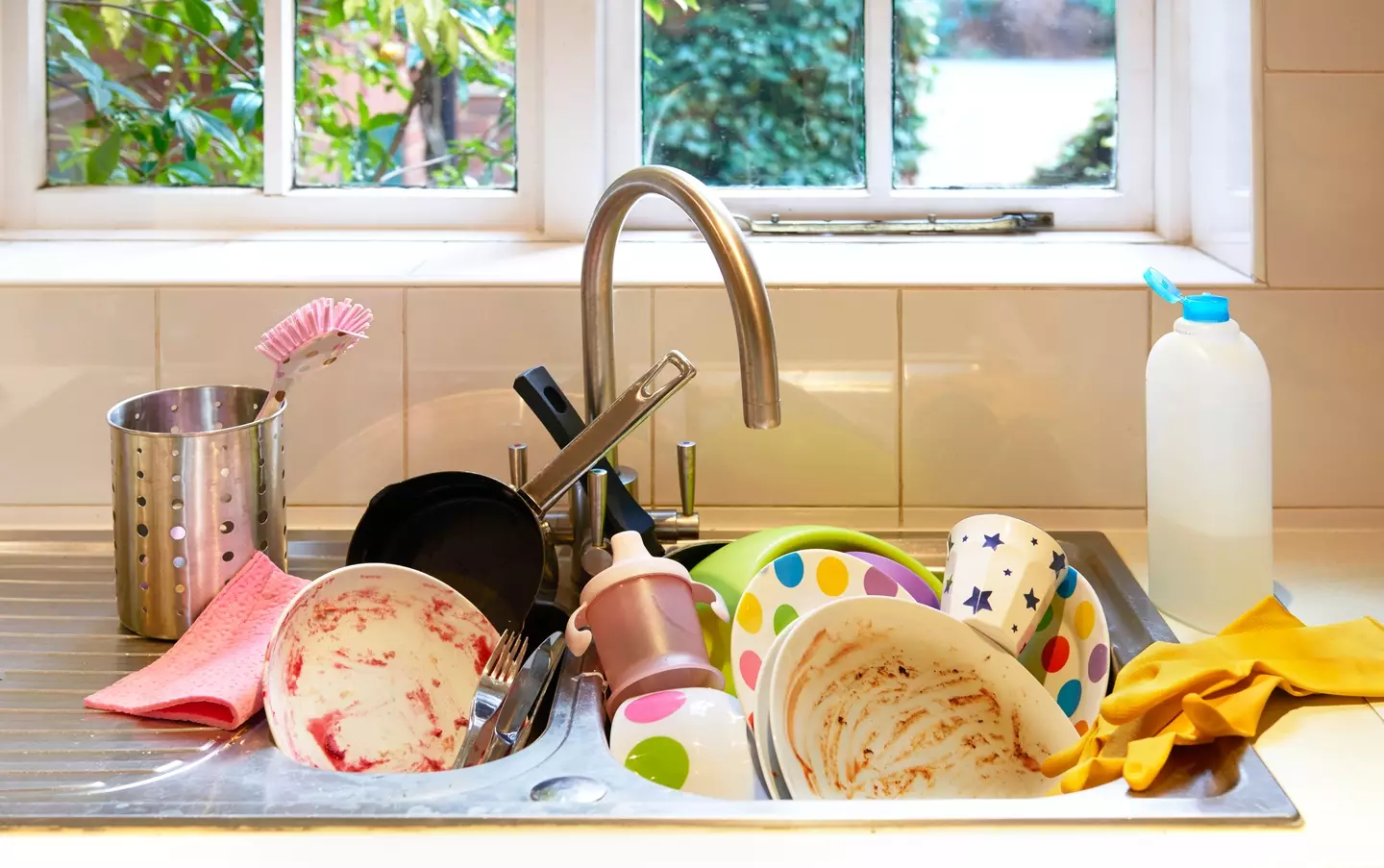
If you're one of those people who sticks their dirty dishes in the sink to 'soak' for a while before doing the washing up then you might want to reconsider.
Basically everyone has done this at some point or another, whether it's out of a belief that soaking the dishes will make cleaning them easier or just plain laziness.
However, experts are warning that it's actually not a great idea because while the end product might look clean enough it could be crawling with harmful germs that are just waiting for the chance to do some damage to you.
Advert
Associate Professor Barbara Mullan of Curtin University, Australia, warned that not doing the dishes and leaving them to soak was a great way to build up germs and spread them around the home.
She told ABC (the Australian one) that leaving out dirty plates which still had bits of food on them was a big germ risk and bacteria could stay alive for days.

"Ultimately if you leave dirty dishes around and there are people in the house, and possibly animals, they are likely to spread bacteria around," she said of the need to do the washing up on time.
Advert
"Bacteria will stay alive on surfaces, even clean surfaces, for up to four days.
"So on dishes that have contamination like food particles, bacteria can stay alive for a very long time."
Sticking the dish in the sink and letting it soak can help spread germs which can cause someone gastrointestinal problems, and it gets even worse if you leave the brushes or sponges soaking in the germy water.
Professor Mullan suggested that a dishwasher was the best place for dirty dishes as it was a 'contained' environment that would be tougher for germs to spread around in.
.jpg)
However, if you are washing your dishes in the sink then she recommended that you use water that's as hot as possible to the point you should wear rubber gloves to handle higher heats.
Advert
On top of that you should be using detergent and not just hot water, and to scrub hard so you're shifting the bits of food with 'brute force'.
You should also pay attention to how clean your cloths, sponges and brushes actually are as she warned that they were normally 'the dirtiest thing in your kitchen'.
Ultimately the goal she suggested for people was to avoid the 'bacteria soup' which formed from leaving dirty dishes to soak in tepid water for a long period of time.
Bacteria soup, that's something you wouldn't want anywhere near your plates, bowls and cutlery.
Featured Image Credit: Flickr/Getty Stock PhotoTopics: Health, Food And Drink, Home